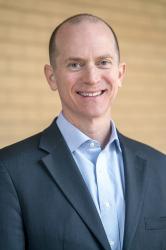Proponents of social democracies claim that a large role for the state is important in tempering the profit motive of capitalism and creating a more humane and cultured state.
Free markets, they argue, result in an inhumane and disintegrated society, while the social democracy models of Europe protect the weak and create social cohesion. Yet these proponents rarely question whether the reality of Europe today bears this out. Even a cursory examination of European and American life reveals that the social democratic models have not achieved their goals. Europe is disintegrating more and more into a collection of individuals who rely on the state as their primary caregiver, and the effects on the family, society, and cultural output are insidious.
Acton Senior Fellow, Jennifer Roback Morse, addressed several of these issues in a lecture with titled “Catholic Social Teaching on the Economy and the Family: an alternative to the modern welfare-state.” The lecture was part of the Centesimus Annus Lecture Series, commemorating the 15th anniversary of the John Paul II’s encyclical. The second of the series, The Family in New Economy, was held on January 21st at the Pontifical North American College in Rome. Cardinal Alfonso Lopez Trujillo, President of the Pontifical Council for the Family, and Professor Manfred Spieker, one of Germany’s leading experts on Catholic social thought, also spoke. To listen to a Vatican Radio report on the conference go here.
She writes:
Today everyone understands that communism is not a viable strategy for achieving either economic growth or solidarity with the poor.
The more urgent task now is to see that Western European socialism has also failed. Although some aspects of the Western European model originally claimed Christian inspiration and objective, it is now clear that the modern Western European welfare-state is collapsing. And while many modern countries share some of the problems I shall loosely call the “European social model,” it is Europe that most desperately needs a genuinely Catholic alternative.
Morse continues:
The simplest way to see the failure of the extended welfare-state is to look at the demography of Western Europe. The demographic implosion of Europe has both economic and spiritual causes. And the demographic problem illustrates the most basic flaw of the system: it is not sustainable. The modern welfare-state or social assistance state can not replenish itself because it has marginalized the family. Rather than strengthen the family, as some originally intended it to do, the social assistance state has weakened and almost replaced the family.
The welfare state has also contributed to the marginalization of marriage… The life-time assistance of the state displaces the economic function of the family. The elderly don’t need adult children to support them in their old age. Women don’t need a husband to support them if they do have a child. Husbands become a nuisance, because the government will provide financial benefits without the inevitable difficulties of dealing with a flawed human being as a partner. In this environment, children become consumption goods, an optional life-style appendage to acquire only if one happens to enjoys children.
I need not say that a genuinely Christian social model would not have allowed itself to become so muddled about the meaning of something so basic as marriage. The combination of secularism, which discourages people from seeking meanings deeper than the material, and socialism, which attempts to satisfy the merely material needs, has led to this wide-spread social confusion.
The so-called “Third Way” has failed. Democratic socialism has been unable to fulfill its promises as Europe’s unemployment, and social disenfranchisement reveal. In fact, the ever-present state has drained Europe of much of its energy. Morse quotes John Paul II who addressed this very issue 15 years ago in Centesimus Annus:
“By intervening directly and depriving society of its responsibility, the Social Assistance State leads to a loss of human energies and an inordinate increase of public agencies, which are dominated more by bureaucratic ways of thinking than by concern for serving their clients and which are accompanied by an enormous increase in spending. CA, 48
There is an alternative, Roback Morse argues:
The solution to this problem is not socialism or corporate capitalism and certainly not communism. The goal should be to create a “society of free work, of enterprise and of participation.”
Free markets create opportunity, and create and distribute wealth better than other economic models; they also create an environment where people can work together and use their creative power to solve problems. But free markets alone are not the answer.
The Church understands that the market cannot solve all the problems of human flourishing. Neither does it expect the state to do so. The Catholic Church seems to be the last institution in the modern world that understands that the state is not the center of the universe and the source of all good.
What is needed is real opportunity and freedom in the economic sphere and a political and cultural order that encourages and creates incentives for virtue. The Catholic social vision also places great importance on the family as the primary unit of society. Any system that does not support the family is bound to fail.
She concludes:
For the family truly is the cradle of any civilization, because it shapes the next generation and transmits the culture’s values to them. The family is even more so the cradle of any civilization of love.
Look for a selection of Jennifer Roback Morse’s text in an upcoming Religion and Liberty. The entire version of the text will be available in the coming weeks at Centesimus Annus Lecture Series website.
Jennifer Roback Morse is the author of Love and Economics: Why the laissez faire family doesn’t work.
She also has a chapter in a new book edited by Robert George and Jean Bethke Elshtain titled The Meaning of Marriage: Family, State, Market, and Morals.

